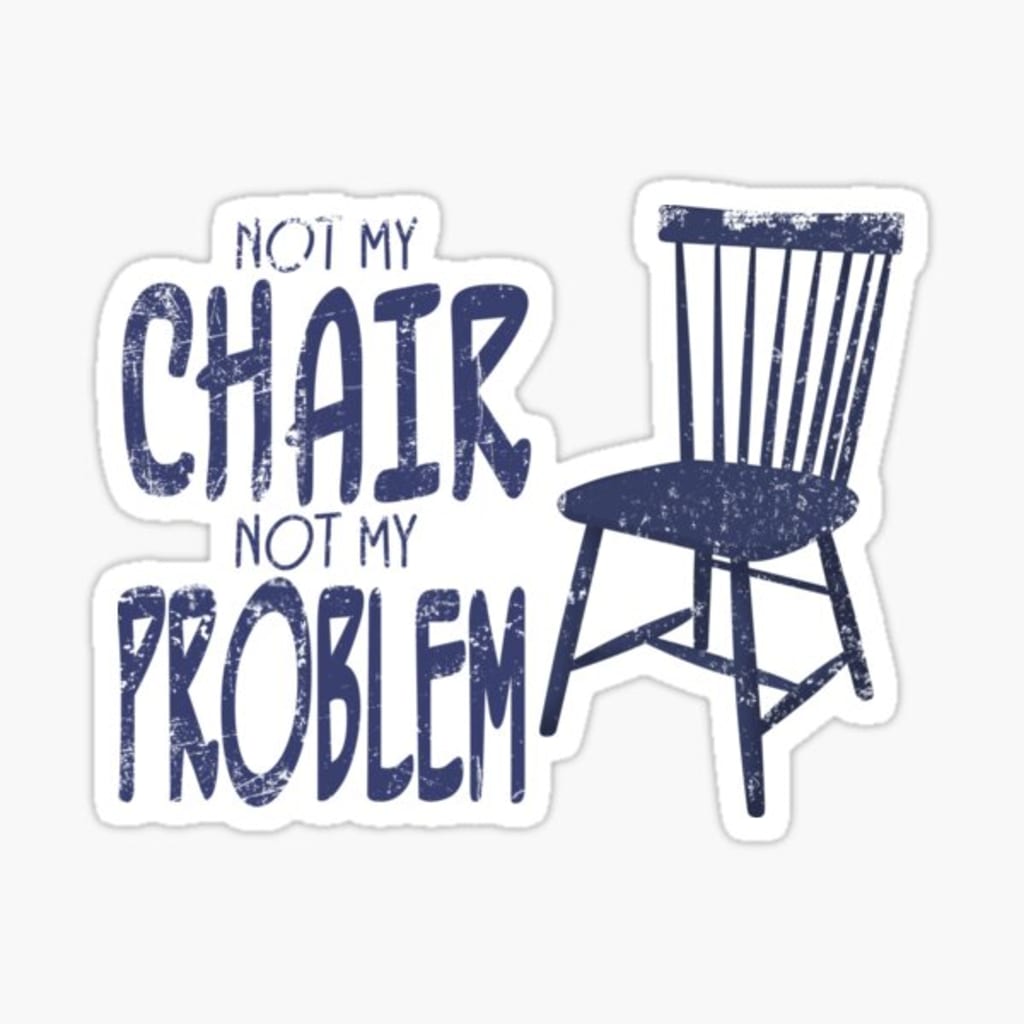Fostering Responsibility, Moving Beyond the Not My Chair Not My Problem Approach
Not My Chair Not My Problem

In any organization, the mindset of "Not My Chair, Not My Problem" can be detrimental to productivity and morale. This attitude, where individuals refuse to take responsibility for issues outside their immediate purview, hinders collaboration and problem-solving. Fostering a culture of responsibility is essential for creating a cohesive and effective team. This blog will explore strategies to move beyond the "Not My Chair, Not My Problem" approach and cultivate a sense of ownership and accountability among employees.
Understanding the Not My Chair Not My Problem Mindset
The "Not My Chair, Not My Problem" mindset is characterized by an individual's reluctance to address issues that fall outside their direct responsibilities. This attitude can arise from various factors, such as a lack of clear job roles, fear of overstepping boundaries, or simply a lack of motivation. While it's natural for employees to focus on their specific tasks, this mindset can lead to missed opportunities for improvement and unresolved problems that impact the entire organization.
The Impact of "Not My Chair, Not My Problem" on Workplace Culture
When employees are unwilling to step outside their defined roles, collaboration suffers. This lack of teamwork can lead to silos within the organization, where departments or individuals work in isolation rather than together. Issues that could be easily resolved with a collaborative effort may linger, reducing overall productivity. Employees who ignore problems outside their immediate responsibilities may inadvertently create bottlenecks. A workplace where the Not My Chair Not My Problem mindset prevails can lead to frustration among employees who do take initiative. This disparity in effort can cause resentment and lower overall morale. Opportunities for innovation and improvement are often missed when employees are not encouraged to think beyond their job descriptions. A culture of responsibility fosters creativity and proactive problem-solving.
Encouraging a Culture of Responsibility
While it's important to encourage employees to take initiative, clear roles and responsibilities provide a foundation for accountability. Each team member should understand their primary duties and how their role fits into the larger organizational goals. However, these definitions should not be so rigid that they discourage stepping outside of one's defined role to help others or address emerging issues. Open communication is key to breaking down silos and encouraging collaboration. Employees should feel comfortable discussing problems and seeking input from colleagues, regardless of departmental boundaries. Regular team meetings and cross-departmental projects can facilitate this openness and create an environment where shared responsibility is the norm.
Recognize and Reward Initiative
Recognizing and rewarding employees who go above and beyond their defined roles can reinforce a culture of responsibility. When employees see that initiative is valued and rewarded, they are more likely to adopt a proactive attitude. Recognition can come in various forms, such as public acknowledgment, bonuses, or opportunities for professional development. Leadership plays a crucial role in setting the tone for organizational culture. Leaders who demonstrate a willingness to take on challenges and address issues, regardless of whether they fall within their immediate responsibilities, set a powerful example for their teams. By modeling the behavior, they wish to see, leaders can inspire their employees to adopt a similar approach.
Conclusion
Fostering a culture of responsibility is essential for moving beyond the Not My Chair Not My Problem mindset. By defining clear roles, promoting open communication, recognizing initiative, leading by example, and providing training and resources, organizations can create an environment where employees feel empowered to take on challenges and contribute to the organization's success. Learning from successful companies like Google and Zappos can provide valuable insights into effective strategies for fostering responsibility. Ultimately, by encouraging a proactive and collaborative approach, organizations can enhance productivity, improve morale, and seize opportunities for innovation and improvement. Moving beyond the "Not My Chair, Not My Problem" attitude requires a concerted effort, but the rewards are well worth it.
About the Creator
Enjoyed the story? Support the Creator.
Subscribe for free to receive all their stories in your feed. You could also pledge your support or give them a one-off tip, letting them know you appreciate their work.





Comments
There are no comments for this story
Be the first to respond and start the conversation.